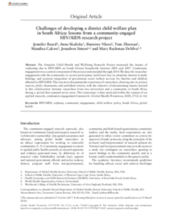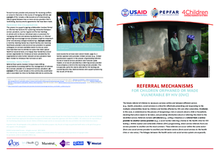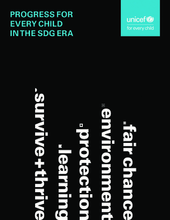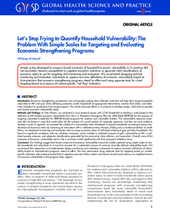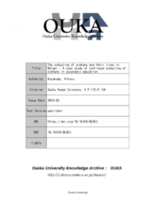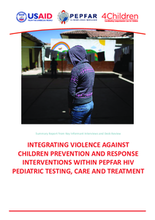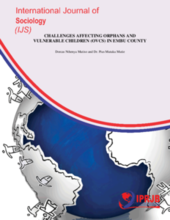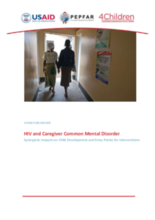Displaying 51 - 60 of 414
The Amajuba Child Health and Wellbeing Research Project measured the impact of orphaning due to HIV/AIDS on South African households between 2004 and 2007. Community engagement was a central component of the project and extended through 2010. This article describes researcher engagement with the community to recruit participants, build local buy-in, stimulate interest in study findings, and promote integration of government social welfare services for families and children affected by HIV/AIDS.
This brief of referral mechanisms within the context of OVC programs describes the different types of referral mechanisms and describes key components of setting up a functioning referral system.
This report from UNICEF assesses the world’s performance towards meeting the 2030 Sustainable Development Goals (SDGs) to date, focusing on 44 indicators that directly concern 2030’s most important constituency: children.
This article discusses efforts in 3 countries to develop simple, valid tools to quantify and classify economic vulnerability status.
This webinar focused on explaining the HIV Risk Assessment cascade and how it is related to OVC_HIVSTAT disaggregates.
The purpose of this study was to investigate how orphans in secondary schools, especially those in the low-income class in society, manage to continue their education.
This report presents the preliminary findings from an ongoing project undertaken by 4Children that seeks to identify key opportunities to incorporate violence prevention and response interventions within priority PEPFAR Program Areas at clinical and community levels.
A desk review was conducted to examine the current gaps in investment related to care and treatment for children living with or affected by HIV.
The purpose of this study was to assess the challenges affecting orphans and vulnerable children (OVCS) in Embu County.
In this paper, the authors review published literature on the mental health status of mothers living with HIV (MLH) and how this affects their children; outline the pathways between maternal HIV, maternal mental health problems, and negative child outcomes; and then describe a number of intervention entry points that they argue have the potential to enhance impact across PEPFAR platforms.

